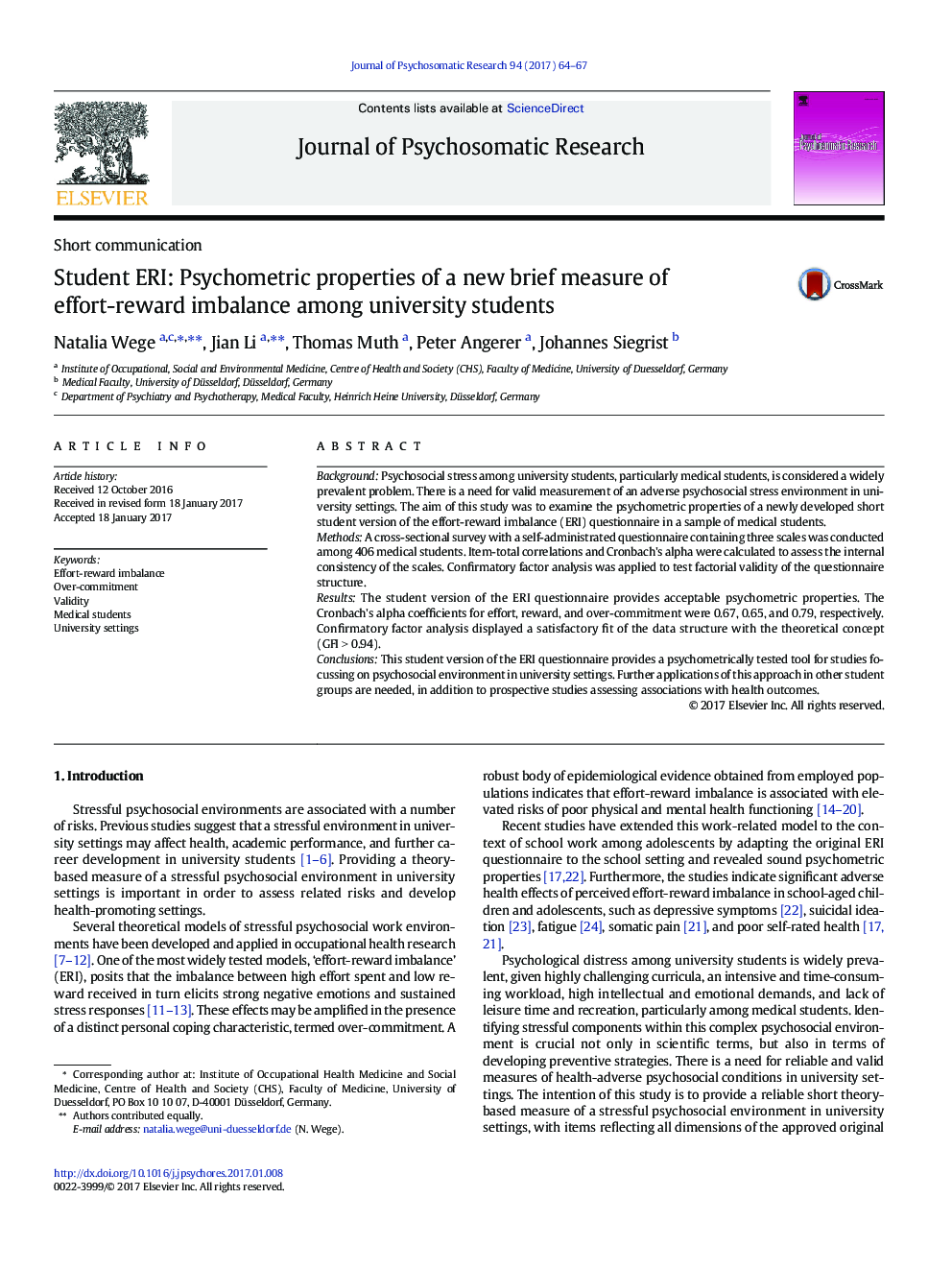| Article ID | Journal | Published Year | Pages | File Type |
|---|---|---|---|---|
| 5045965 | Journal of Psychosomatic Research | 2017 | 4 Pages |
â¢Psychosocial stress among university students, particularly medical students, is considered a widely prevalent problem;â¢There is a need for valid measurement of an adverse psychosocial stress environment in university settings;â¢Student-ERI questionnaire is a psychometrically tested tool for assessment of psychosocial stress in university settings.
BackgroundPsychosocial stress among university students, particularly medical students, is considered a widely prevalent problem. There is a need for valid measurement of an adverse psychosocial stress environment in university settings. The aim of this study was to examine the psychometric properties of a newly developed short student version of the effort-reward imbalance (ERI) questionnaire in a sample of medical students.MethodsA cross-sectional survey with a self-administrated questionnaire containing three scales was conducted among 406 medical students. Item-total correlations and Cronbach's alpha were calculated to assess the internal consistency of the scales. Confirmatory factor analysis was applied to test factorial validity of the questionnaire structure.ResultsThe student version of the ERI questionnaire provides acceptable psychometric properties. The Cronbach's alpha coefficients for effort, reward, and over-commitment were 0.67, 0.65, and 0.79, respectively. Confirmatory factor analysis displayed a satisfactory fit of the data structure with the theoretical concept (GFIÂ >Â 0.94).ConclusionsThis student version of the ERI questionnaire provides a psychometrically tested tool for studies focussing on psychosocial environment in university settings. Further applications of this approach in other student groups are needed, in addition to prospective studies assessing associations with health outcomes.
